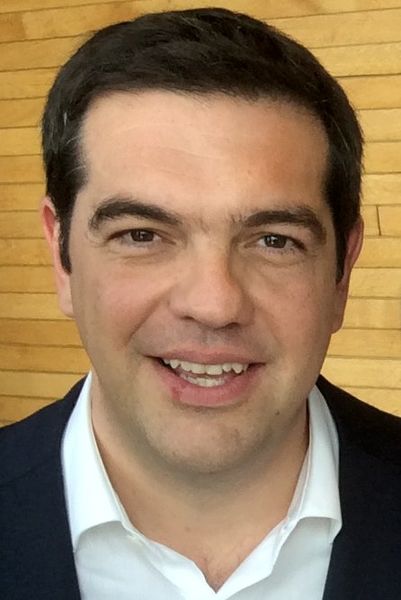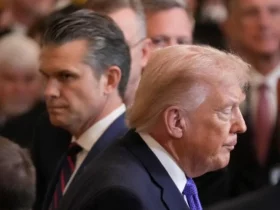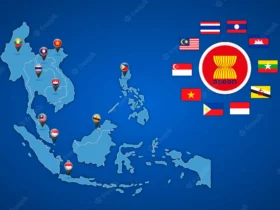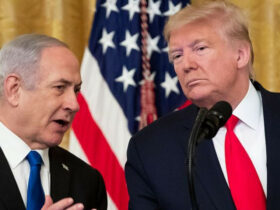On February 26, the UN Secretary-General’s special envoy for Cyprus, Elizabeth Spehar, will chair an informal meeting between the leaders of Cyprus’s Greek and Turkish communities, Nicos Anastasiades and Mustafa Akinci. It is not clear, however, what questions will be discussed and whether the event will mean a de facto resumption of negotiations on settling the Cyprus crisis.

Let’s recall that the previous round of the UN-sponsored talks on Cyprus took place in Crans-Montana, Switzerland, on June 28 through July 7, 2017. The list of attendees included the heads of both Greek and Turkish communities and representatives of the guarantor nations—Turkey, Greece, the UK, and the EU. The latter had been invited as an observer. As the UN Secretary General Antonio Guterres announced the completion of the conference, he said it had ended “without the possibility to bring a solution to this dramatically long-lasting problem.” He also stated the presence of considerable differences between the Greek Cypriots and Turkish Cypriots on a range of issues that made an agreement unattainable for the time being.
As regards the forthcoming informal meeting, we can’t help saying that the leaders of the two communities agreed to hold it as they spoke on the phone the next day after Greek Prime Minister Alexis Tsipras’s visit to Turkey and his talks with President Recep Tayyip Erdogan. The presence of this interconnection calls for a closer look at the agenda of the talks and the statements the sides have made in the context of prospects for settling the division in Cyprus.
Proceeding from reports in the media, one can suppose that bilateral cooperation in the energy sector and in the economy in general, as well as security in the Aegean Sea area, the problems of ethnic and religious communities – the Moslem Turks in Greece and the Christian Greeks in Turkey — and settlement in Cyprus occupied the top of the agenda.
It is noteworthy that the statements Tsipras made at the end of the talks were mostly encouraging from the point of view of further progress in Greek-Turkish collaboration. Beyond any doubt, large regional energy projects where Turkey in Greece are already engaged or plan to take part together play an important role in it.

The Greek government is interested in the expansion of energy cooperation with Turkey and in joining the implementation of the Turkish Stream pipeline project, among other things. The latter envisions construction of a pipeline from Russia across the bottom of the Black Sea to the European part of Turkey and further to the Turkish-Greek border. The first pipeline string will deliver Russian gas to Turkey and the second is meant for supplies to Southern and Southeastern Europe. The Russian gas giant Gazprom is eyeing Bulgaria, Hungary, Greece, Italy, and Serbia as its potential markets.
According to Tsipras, the energy sector should serve as a bridge for cooperation, not as an impediment or a cause for clashes in the region. He also said the Greek and Turkish governments were already cooperating in one of the projects of this kind, the Trans-Adriatic Pipeline. This means the Russian energy resources and the routes of their delivery to the consumers are important enough in terms of improving the agenda of Greek-Turkish relations. The factor is fairly for the region and it provides a number of advantages to Ankara by enabling it to maneuver between Greece and Bulgaria, since the two countries have entered a serious competition for the role of a second most important Russian transit gas operator after Turkey.
There are all the signs that the Greeks are prepared to do really much for achieving this goal. For instance, they have begun to view Turkey as a major partner in organizing a new business forum that will showcase the opportunities opening up for cooperation now that Greece is re-emerging from the crisis that has plagued it for many long years. One more thing Tsipras said was that Greece supported Turkey’s prospective membership of the EU even through the two countries had not ironed out their differences over the Cyprus problem. In addition to it, Tsipras said he did not support the Turkish putsch masterminds. The problem of the eight Turkish military, who fled to Greece, doesn’t lie within the scope of his competences and, most probably, stays in the sphere of justice. During the talks, Erdogan and Tsipras also agreed to open a commercial sea route between Izmir and Thessaloniki this summer.
Will the process of Cypriot crisis settlement finally get off the ground now that Greece and Turkey have struck so many accords? Judging by the promptness of telephone conversations between the leaders of the Greek Cypriot and Turkish Cypriot communities following the Greek-Turkish contacts, one can hope that things will get going in one way or another. But the likelihood of a breakthrough is small. The reason is the list of guarantor countries includes the UK, which has two military bases on the island. London realizes only too well that no one will raise questions about the bases as long as the Cypriot problems lingers on – the sides will be too busy to get down to it. Yet when the light of reunification finally gleams at the end of the Cypriot tunnel, the issue of the island’s sovereignty and territorial integrity will be brought to a head. That’s why it is important to seek solutions to the Cypriot problem not only in the Greek-Turkish relations but much more in the UK’s geopolitical ambitions and economic aspirations that have grown out of bounds in the wake of the ‘Arab spring’ and the discovery of large deposits of natural gas in Eastern Mediterranean.

















Leave a Reply